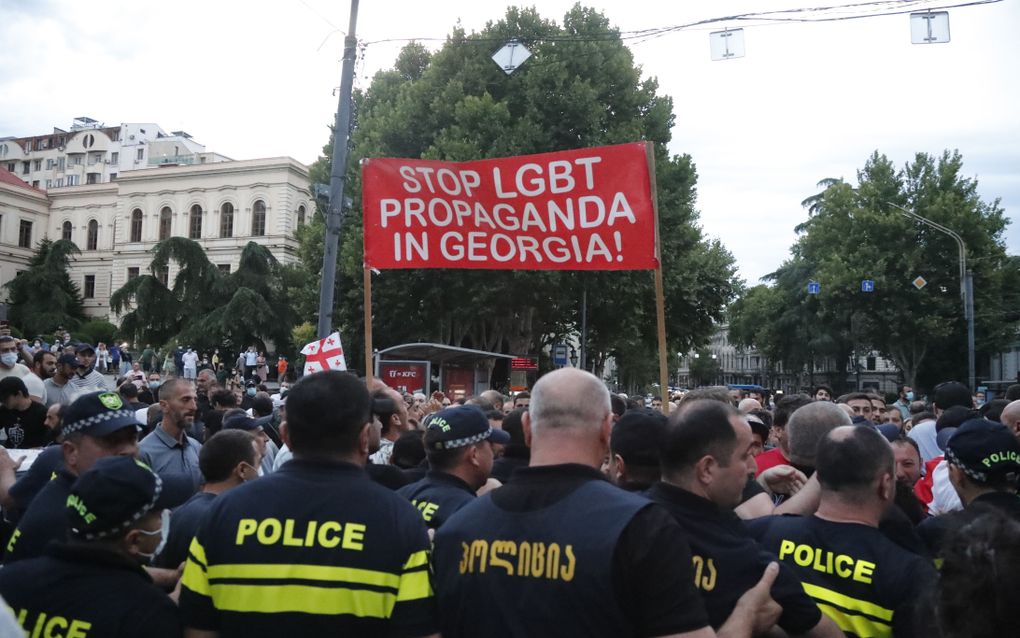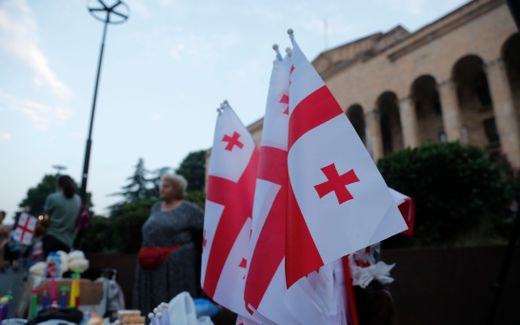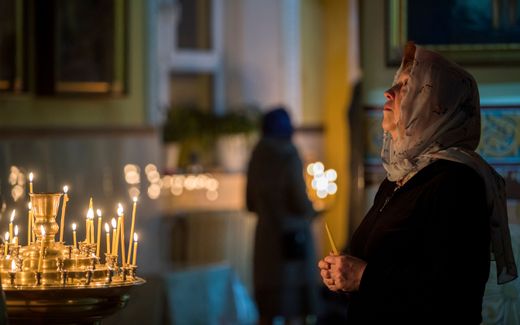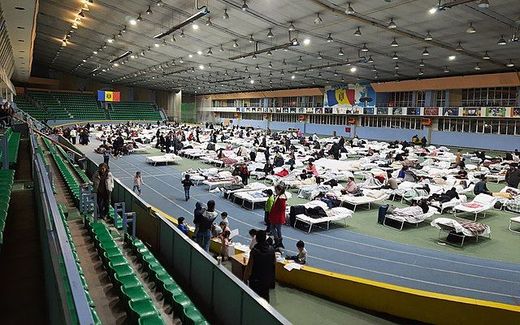Capitals of Moldova and Georgia ban Pride marches

Photo EPA, Zurab Kurtsikidze
Eastern Europe
The Moldovan capital of Chisinau will not allow an LGBT pride march in the city. In Georgia, a similar ban was imposed.
"You can do whatever you want at home, but not in public", the Chisinau mayor Ion Ceban said, according to the Russian press agency Interfax.
Earlier on Tuesday, Metropolitan Vladimir, of the Moldovan Orthodox Church under the Moscow Patriarchate, urged the city authorities to do "whatever it takes" to stop the encouragement of "non-traditional sexual orientation" in Moldova and ban the pride parade. "The organisers of this parade and their foreign mentors should already know the realities of these places from the experience of past years since such demonstrations always cause danger, violence and skirmishes on both sides", said Metropolitan Vladimir. He pointed out that, according to the law, the authorities have every right to prevent a march that "insults public morality and grossly violates the freedoms of other people." According to the Metropolitan, the march would defy "the values of the majority of our society." According to the 2021 International Social Survey Programme (ISSIP) study, 84 per cent of the Georgian public thinks that sexual relations between two adults of the same sex are always wrong, which is the highest score in Europe.
According to Interfax, the People's Assembly of Gagauzia, an autonomous region in Moldova, banned "propaganda" about same-sex relationships and LGBT pride parades on May 26th.
Fight
Across the Black Sea, in the Georgian capital of Tbilisi, the authorities also banned a pride parade. The organisation of the pride parade said this in a statement. "We remain the only group that has been deprived of the right to assemble and demonstrate", the organisation stated. Although the Pride week will be held, it is not permitted to have a march through the capital.
According to the organisation, the vast majority of the Georgian population is against them. "This is what gives us hope that our fight makes sense", the organisation said according to Radio Liberty.
Mobilisation
This year, the right-wing party Conservative Movement leaders have announced a "mobilisation" against the Pride activities. Konstantine Morgoshia, one of the leaders of the party, told TV Pirveli on Wednesday that his party could gather several thousand people to end "these monkeys" in Georgia. This reports the Georgian news website Civil. When the TV host asked what the group would do if the police tried to protect the event, Morgoshia said that "there is no law above the people's will."
In response to another question from the journalist, whether they hope that Prime Minister Irakli Gharibashvili will support their plan, Morgoshia said that after coming to the office for a second term, Irakli Gharibashvili's statements "coincide with the will of the absolute majority of the Georgian people."
"Therefore, I am sure that the Prime Minister, even in this case, will stand by the side of the absolute majority of the Georgian people," Morgoshia stressed.
Last year, several groups gathered to protest the march. LGBT activists then cancelled a gay rights event after their office was stormed. Police arrested a total of 27 people for violence against journalists. Tbilisi City Court has already charged all 27 people who attacked the journalists. However, law enforcement has not arrested the organisers of the violence so far.
Related Articles






